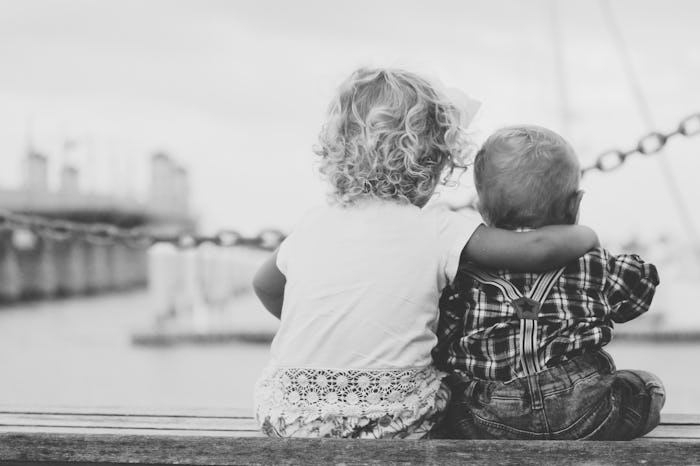Life
Does Growing Up Without Siblings Profoundly Affect Your Kid's Mental Health?
There's no doubt that the number of kids growing up in a household together changes the family dynamic. But for only children, does growing up without siblings affect kids' mental health? While studies have been done showing personality and social differences between children who grew up with siblings and those who did not, there is no conclusive evidence that growing up as an only child impacts one's mental health, according to the Independent.
In a 2015 article for the Independent, sibling researcher Avidan Milevsky said that the influence of siblings on one's personality and growth has long fascinated psychologists. While some in the scientific community developed the idea that having siblings is detrimental, others determined that being an only child is a bigger problem. There are some elements of childhood and adolescence that are generally different for only children versus sibling groups. In a Psychology Today article, psychologist Carl E. Pickhardt, Ph.D. wrote that in families with one kid, it's common for moms and dads to feel increased parenting pressure and to have higher expectations for only children. Only children may also adopt the social and verbal behaviors displayed by their parents more easily than those displayed by their peers since they don't have the consistent influence of sibling behavior. But as both Pickhardt and Milevsky suggest, there is no scientific evidence that being an only child is somehow better or worse for one's mental health.
Though researchers do look into family dynamics often, Milevsky pointed out in the Independent that studies can be inconclusive or contradictory. One study published by the Journal of Social and Personal Relationships in 2002 asked if having siblings impacts social skills. The researchers at the University of Memphis found that only children and children with siblings were on par when it came to forming close and high-quality friendships, but they did determine that only children struggled more to fit in:
Only children were more likely both to be victimized and aggressive in the peer group, suggesting that having a sibling may be especially helpful for learning to manage conflict.
The writers did note that more research is necessary to determine if other elements of the family dynamic led to the findings. The results of the study counter a literature review published in the Journal of Individual Psychology in 1977 that attempted to distill research on the psychological impact of being an only child. The researcher found that only children do tend to exhibit "lower needs for affiliation," but that it may be a good thing: since they get so much attention at home, they're more secure in the relationships they do build with their peers. The literature review also revealed that "the popular conception of only children as selfish, lonely, or maladjusted is not supported by the small amount of relevant research."
Despite calls for more research, it seems that parents can relax. Being an only child doesn't seem to have any known impact on mental health.
